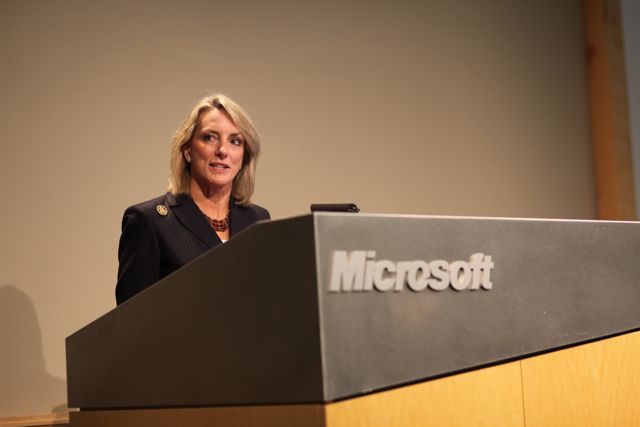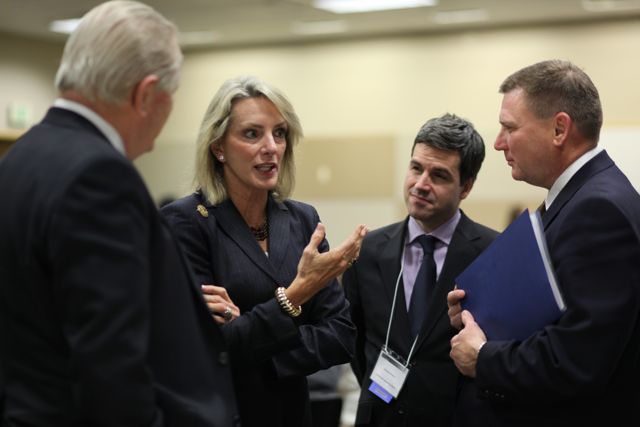 Keynote speaker Ambassador Elizabeth Bagley discusses the importance of building partnerships between the public and private sectors in effort to take on the wide-ranging scope of the world’s challenges. She notes that in the 1960s, 70% of the aid money from the U.S. to foreign countries was official government development funding. Today, 80% of aid money from the U.S. to foreign countries comes from private assistance through businesses, philanthropists, and non-profits. This increase in private sector funding highlights the necessity of government partnership with the private sector. Bagley says, “partnerships are at the heart of ‘smart power’ and go beyond the effectiveness of soft and hard power to achieve foreign policy goals.” Advances in technology have broken geographic and economic barriers and the global community is connected now more than ever before.
Keynote speaker Ambassador Elizabeth Bagley discusses the importance of building partnerships between the public and private sectors in effort to take on the wide-ranging scope of the world’s challenges. She notes that in the 1960s, 70% of the aid money from the U.S. to foreign countries was official government development funding. Today, 80% of aid money from the U.S. to foreign countries comes from private assistance through businesses, philanthropists, and non-profits. This increase in private sector funding highlights the necessity of government partnership with the private sector. Bagley says, “partnerships are at the heart of ‘smart power’ and go beyond the effectiveness of soft and hard power to achieve foreign policy goals.” Advances in technology have broken geographic and economic barriers and the global community is connected now more than ever before.
New world players are emerging and governments or traditional political actors that rely on doing ‘business as usual’ will diminish their role in the world unless they recognize that all the issues are interconnected and so too are the answers. Bagley emphasizes, “no government or leader can act alone to address the world’s needs.” Cross-sector global partnerships are critical for working towards women’s empowerment, anti-humantrafficing initiatives, promoting energy security with clean energy, and “creating real change with how the [U.S.] government engages with other governments,” according to Bagley. One key partnership involves engaging diaspora communities with opportunities to contribute to the political, social, and economic growth of their respective homelands. Bagley underscores when governments, particularly the U.S. government, partner with key stakeholders they become conveners, catalysts, and collaborators for real change in the communities and countries they serve.
Writing by Nina Carduner
Photography by Nancy LeVine